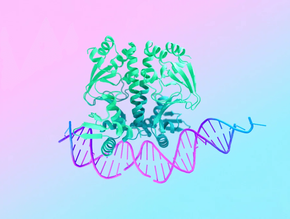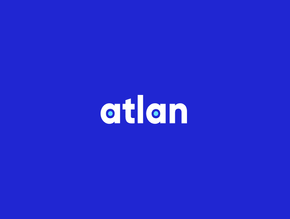Meta AI Chief: Current AI not at dog-level intelligence

Despite the fact that Artificial Intelligence has witnessed remarkable progress in recent years (and months), its essential level of cognition is still a subject which splits the room.
According to Yann LeCun, VP and Chief AI Scientist of Meta, current AI systems have not yet achieved the level of intelligence comparable to dogs.
Speaking at the Viva Tech conference in Paris, the Meta-AI Chief made a direct statement, shedding light on the existing gap between AI systems and canine cognition.
This raises intriguing questions about the limitations of AI and the ongoing pursuit of bridging this cognitive divide.
The current landscape
LeCun emphasised, "current AI systems have made significant strides; however, there are fundamental aspects of canine cognition that we have yet to fully replicate."
Dogs possess a unique blend of sensory perception, adaptability and decision-making skills, allowing them to comprehend complex environments and interact effectively with humans and their surroundings.
This highlights the complexity and sophistication of cognitive abilities that AI is striving to achieve.
Artificial emotionality?
One area where dogs demonstrate superior intelligence is in their ability to perceive and interpret emotions. LeCun further explained, "Dogs have an extraordinary capacity to understand human gestures, vocal tones, and facial expressions, enabling them to respond appropriately to various situations." Although AI systems have made progress in emotion recognition, nuanced understanding and contextual interpretation still pose challenges.
What is social Intelligence?
Another significant disparity lies in dogs' social intelligence. The Meta-AI Chief noted, "Dogs possess an inherent understanding of social hierarchies, emotional bonding, and communication cues, which play a crucial role in their interactions with both humans and other dogs."
In contrast, AI systems often rely on rule-based algorithms and lack the intuitive social understanding that dogs exhibit.
The possible AI path to canine-level ‘intelligence’
While acknowledging the current gap, LeCun expressed optimism about ongoing research and development efforts. He stated, "researchers in the Meta-AI community and other organisations are actively exploring innovative approaches to bridge this cognitive divide and enhance AI systems."
Advancements in neural networks and deep learning techniques are at the forefront of AI research.
LeCun elaborated, "by training AI models on diverse datasets, including multimodal inputs, we aim to imbue AI systems with a more comprehensive understanding of the world, moving closer to canine-level comprehension."
Researchers are also currently tackling challenges related to contextual reasoning and common-sense understanding. LeCun highlighted the ongoing efforts, stating, "We are working on developing AI models that can grasp nuances, comprehend complex situations, and make logical deductions, mirroring the cognitive abilities displayed by dogs."
Beyond canine-Level Intelligence?
The journey to achieve canine-level intelligence in AI serves as a stepping stone toward a broader ambition—reaching human-level cognition.
LeCun noted, "by studying and replicating the cognitive abilities of dogs, we hope to pave the way for a future where AI can effectively navigate and comprehend our complex human world."
Attaining human-level cognition in AI would revolutionise various industries, including healthcare, education, and autonomous systems. LeCun emphasised the potential impact, stating, "AI's ability to understand human emotions, communicate effectively, and exhibit intuitive decision-making could transform technology interaction and revolutionise multiple sectors of society."
The Meta-AI Chief's direct statement sheds light on the ongoing journey of AI advancements and the existing gap between current AI systems and canine cognition. It underscores the complexity of cognitive abilities and the challenges faced by AI researchers.
As AI continues to progress, the boundaries of what is possible expand, bringing us closer to unlocking the full potential of this transformative technology.






